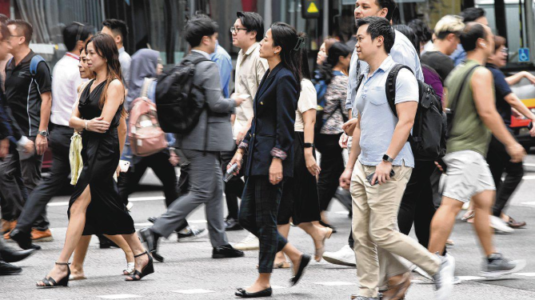Subtle biases and stereotypes challenge Filipino workers, revealing gaps in workplace inclusivity.
In Singapore’s multicultural corporate landscape, Filipino professionals often encounter microaggressions—subtle, unintentional slights that carry emotional and psychological consequences.
Take Lara*, an advertising executive who recalls a colleague patting her head during lunch, saying, “You’re not the typical Filipino.” While framed as a compliment, it reflected deeper stereotypes about Filipinos in Singaporean workplaces. Lara notes that such remarks, though seemingly casual, have heightened her anxiety and pushed her to overcompensate at work.
A Growing Workforce, Persistent Stereotypes
Filipinos in Singapore make up a significant portion of the workforce, with over 200,000 living and working in the country. While initially associated with domestic work, Filipinos now hold roles as IT specialists, nurses, engineers, and more. Yet, the stereotypes persist.
The media portrayal of Filipinos has done little to challenge these biases. Characters like Leticia Bongnino, a comedic depiction of a domestic worker in The Noose, remain one of the few representations of Filipinos in Singaporean pop culture.
These biases often manifest as microinvalidations. Dr. Derald Wing Sue, a psychologist, describes these as subtle acts that exclude or undermine the experiences of marginalized groups. For professionals like Resty*, a graphic designer, and Robbie*, a high school teacher, this has meant being overlooked or overworked due to perceived submissiveness or lower competence.
Emotional Toll
The psychological effects of workplace microaggressions can be profound. Resty endured years of excessive workloads, leading to anxiety attacks triggered by simple reminders of work. Robbie found himself becoming perfectionistic, overcompensating to prove his competence while struggling with irritability at home.
Kristal, a regional manager in a pharmaceutical company, recalls how colleagues spoke slowly and carefully around her, assuming she had difficulty understanding English. Despite her managerial position, these assumptions undermined her confidence.
Addressing Workplace Microaggressions
Experts emphasize the need for systemic change. Sociologist Tan Ern Ser points to underlying anti-foreigner sentiment as a key factor. Behavioral solutions, like unconscious bias training and promoting diversity and inclusion, could minimize microaggressions.
Human resources consultant Kwok Wan Yee recommends companies implement simple measures, such as sharing resources on racial sensitivity through newsletters or training sessions. “Creating awareness is a step toward fostering a more inclusive workplace,” she says.
Despite the challenges, many Filipino professionals, like Lara, choose to navigate these experiences with resilience. But as the presence of Filipino professionals grows, so too must the effort to address the biases that hinder workplace harmony and inclusivity.








